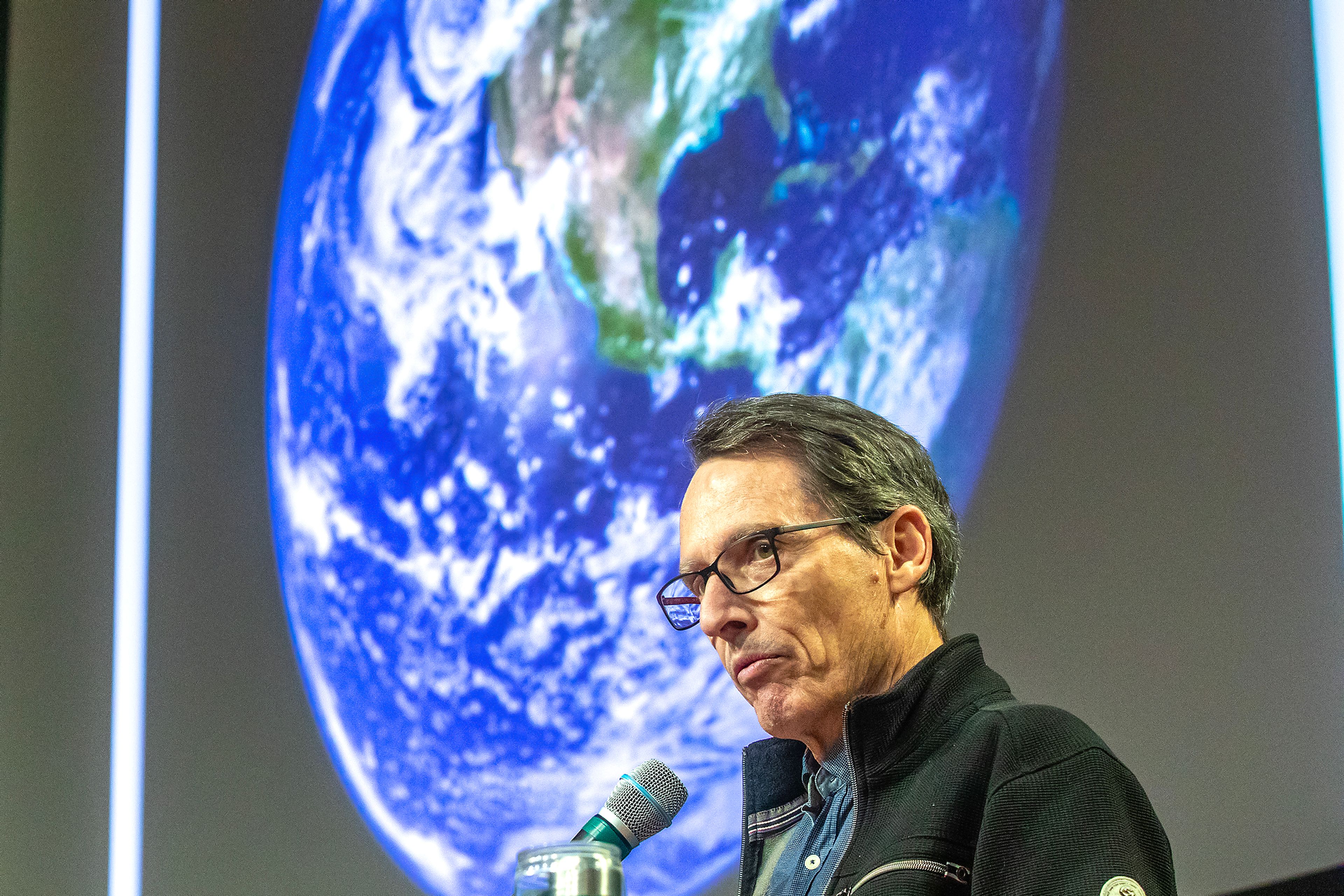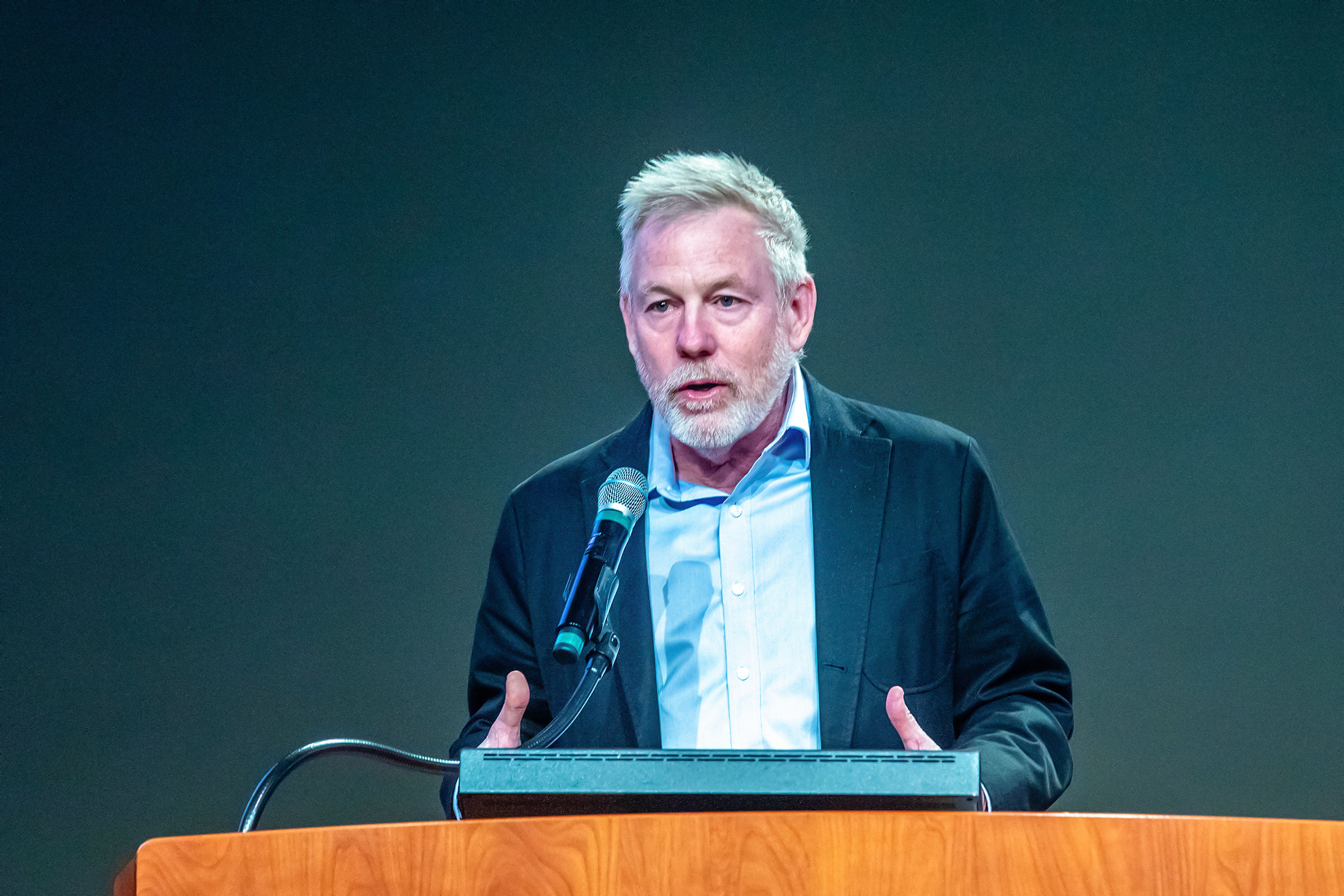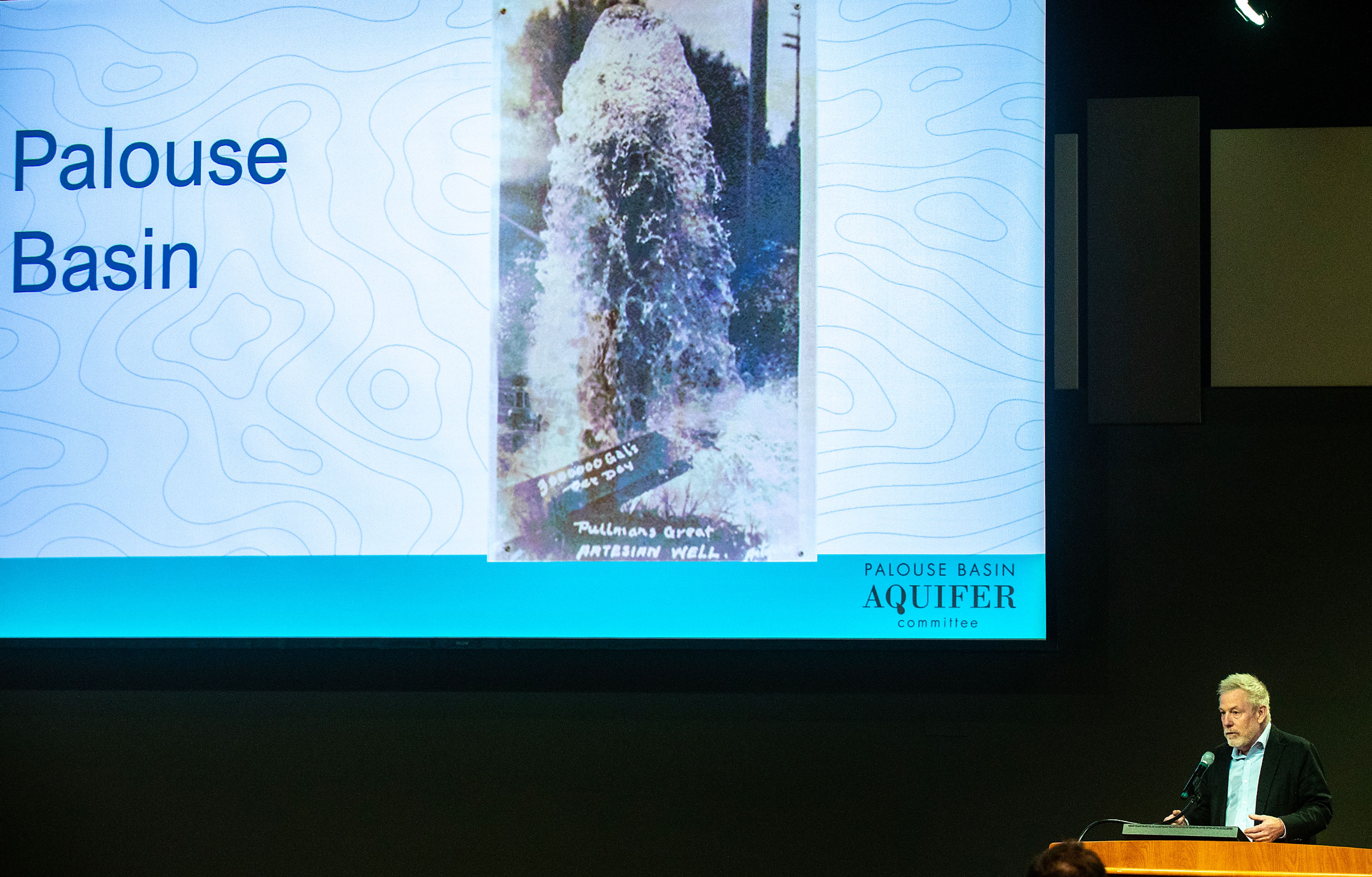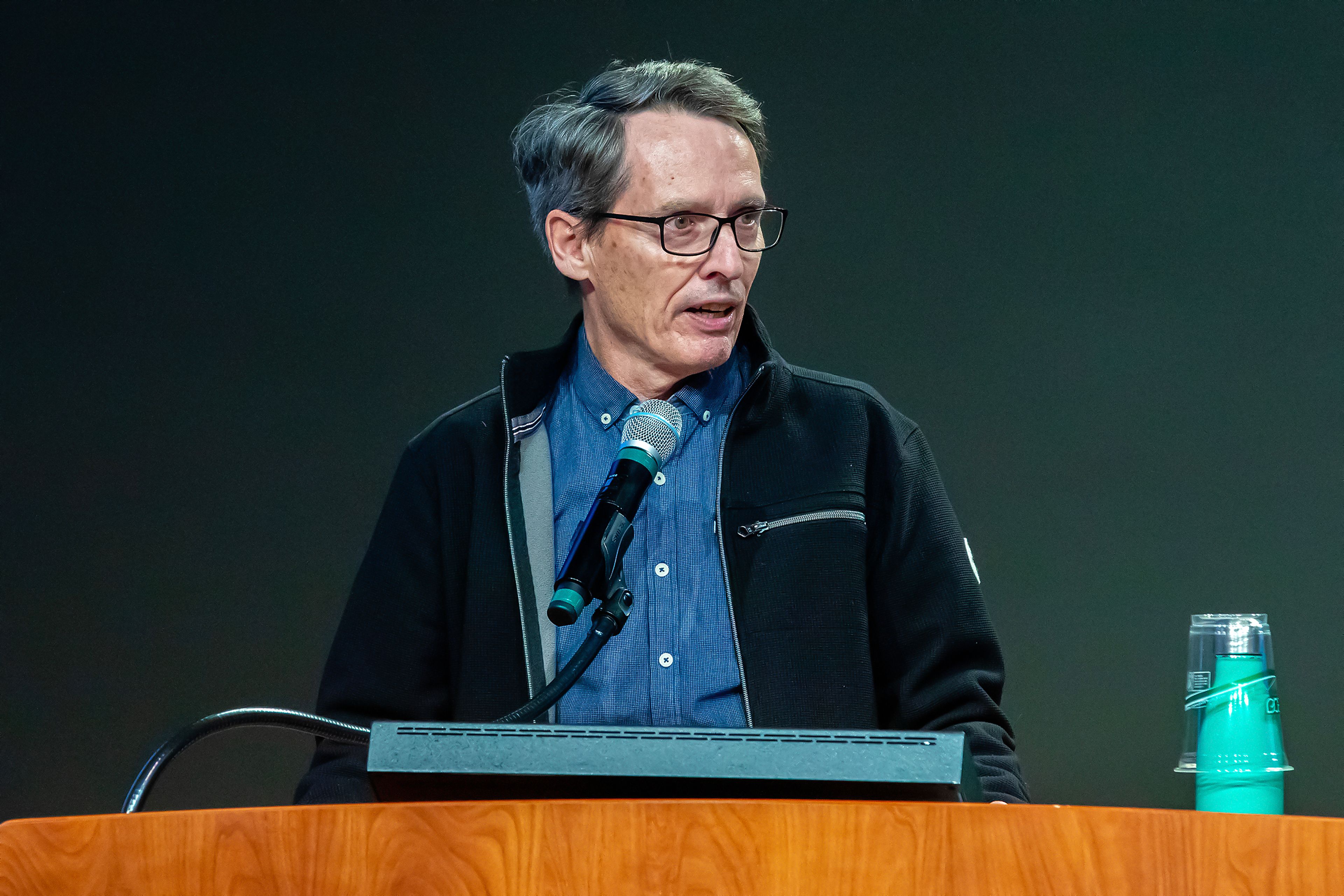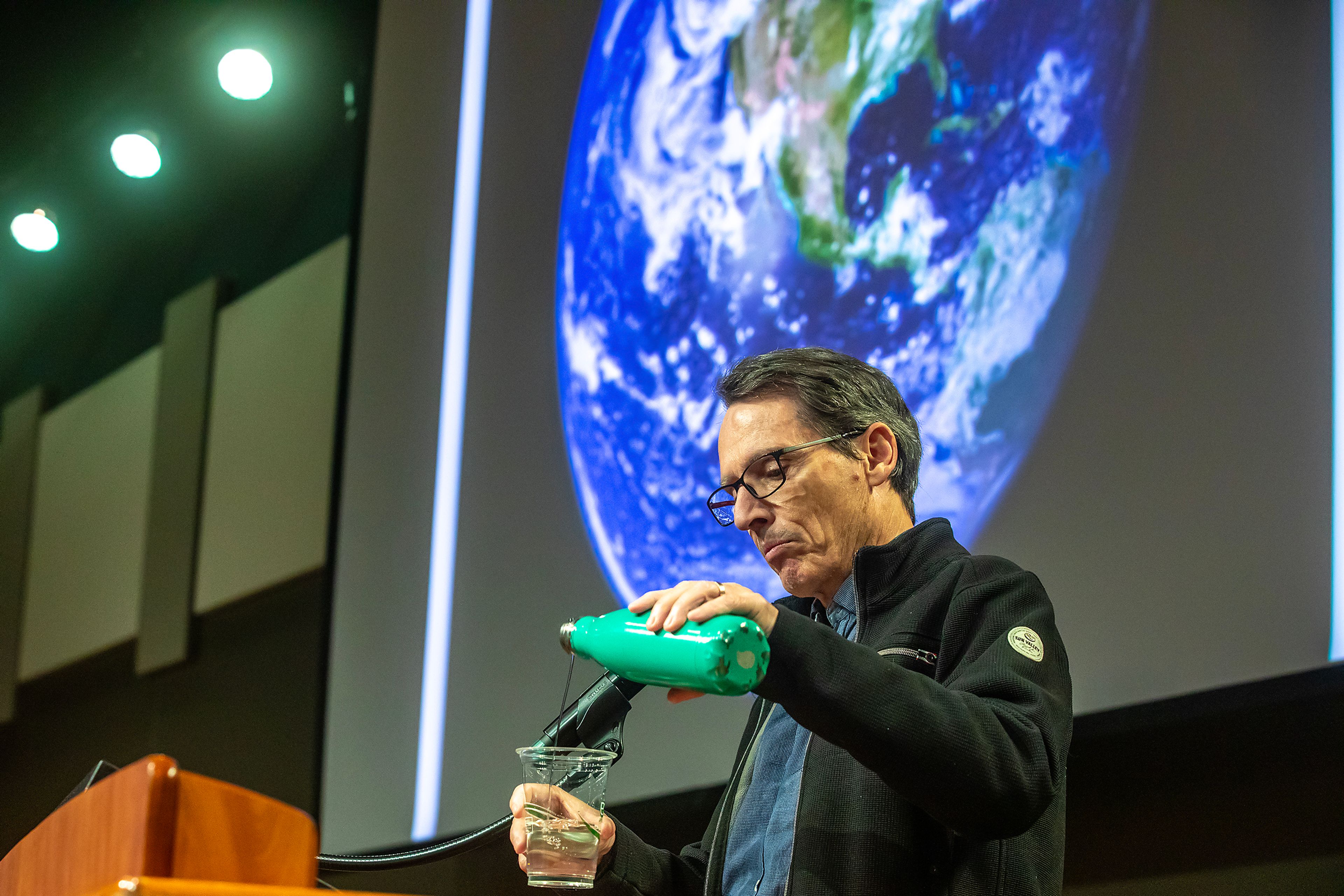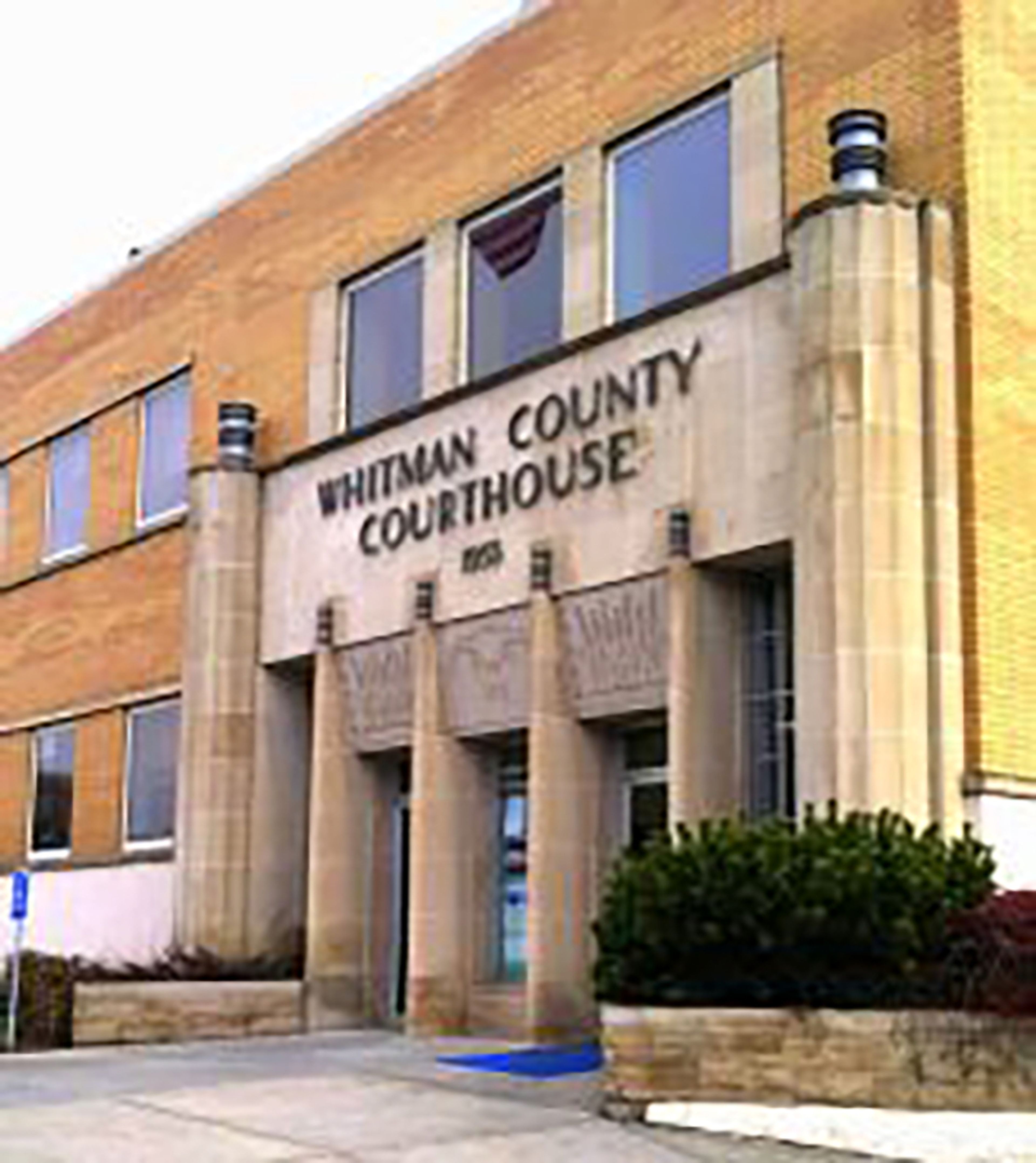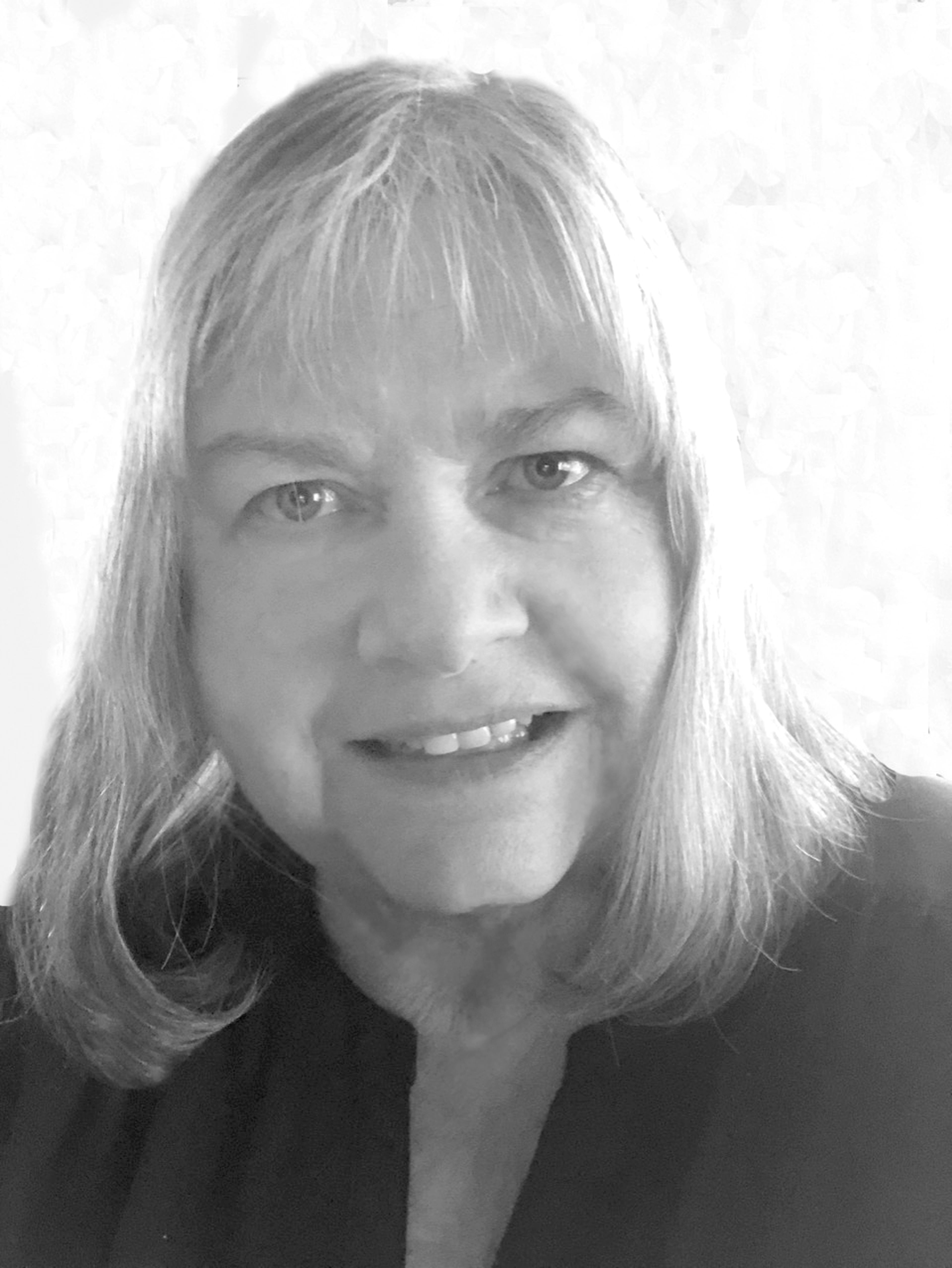Water expert says awareness is key
Author Stephen Leahy speaks at Palouse Basin Water Summit’s annual gathering
An incorrect event organizer was listed in the original version of this story. The article has been updated to reflect the correct event organizer.
Stephen Leahy said the first step to decreasing people’s water footprint is being aware of how much they’re consuming.
The Palouse Basin Water Summit held its 21st Water Summit on Tuesday evening at the Schweitzer Laboratories Event Center. Each year, the organization hosts the event to inform the community about the local water supply, bring water issues to light and promote conservation.
The summit brought out Leahy, award-winning journalist and author, to make the public aware of their water footprint.
Leahy’s work has appeared in the National Geographic, The Guardian, The Atlantic and other well-recognized organizations. He received the 2018 and 2019 international SEAL Award for environmental journalism and the Prince Albert/UN Global Prize for his coverage of climate change.
His book, “Your Water Footprint,” was awarded the Best Science Book of the year in Canada.
Leahy said many people don’t realize how much water they use on a daily basis. Most of what they consume isn’t from drinking, but from production. He said water used to make clothes, food and various products is no longer available within a reasonable time frame.
For example, he said it takes 37 gallons to grow and produce what’s needed to create a cup of coffee, 634 gallons to make a burger and 2,000 gallons to manufacture a pair of jeans.
As the world’s population grows, Leahy said there’s more reason to conserve water. He said the best way to do this is be conscientious of what people eat and buy. He advocates for cutting down on food waste and eating less meat, as well as buying second-hand and recycling when possible.
“We are far more reliant on water than we know,” he said. “And we could use a lot less if we wanted to; it just hasn’t been a priority.”
Palouse Basin Aquifer Committee Executive Director Mike Faupel presented the annual “State of the Palouse Basin” report.
He said the groundwater levels have been declining since the late 1800s. In the 1990s the rate of decrease was around 1.3 feet per year, which was reduced to about 0.73 feet per year currently. The reduction has demonstrated that conservation efforts and technology advancements have been effective, he added, but aquifer water levels continue to drop as demand outweighs supply.
The Palouse water source provides for over 80,000 residents in Whitman and Latah counties each year, he said. Around 2.34 billion gallons of groundwater was pumped by Pullman, Moscow, Palouse, Washington State University and the University of Idaho in 2023. This was 6% less than what was pumped in 2022, or 2.28 billion gallons.
To continue conserving water, Faupel recommends people be aware of their water usage, and educate themselves about where their water is derived from.
He said conserving water will always be the most cost-effective solution.
“This can be fixed,” he said.
The summit also heard from Samuel Penney, Nez Perce Tribal Executive Committee member, who spoke to the significance of maintaining the region’s water source.
He said water is the most existential issue worldwide, but also on the Palouse. He added there’s a responsibility to taking care and preserving as best the community can, in a collaborative nature with everyone who uses it.
Moscow Mayor Art Bettge and Pullman Mayor Francis Benjamin also spoke at the summit, voicing similar points to Penney’s.
Bettge said while a lot of water has been saved, the Palouse has a long way to go. He added securing water for the future is an absolute necessity, and is key to the long-term viability of the area.
Francis agreed, and said this isn’t something one person can solve, but instead takes multiple communities working together.
“I encourage you, and anybody who’s thinking about it … to get involved,” he said. “This really isn’t something that any one community can solve. ... This is something that we need to work on jointly.”
Pearce can be reached at epearce@dnews.com
